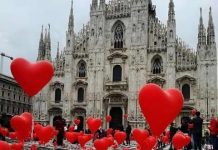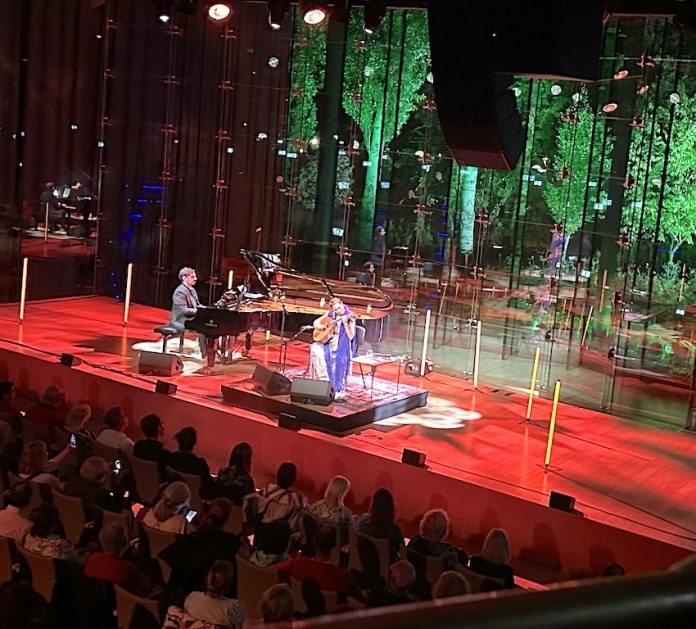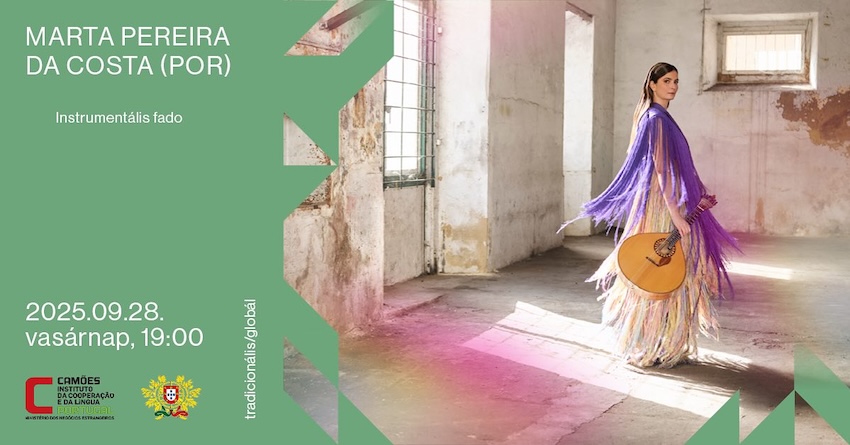A Voice Beyond Words – The Portuguese Guitar
Edited by Anna Popper
Twelve strings. A unique tuning. A sound both bright and melancholic. The Portuguese guitar is one of the great symbols of Portuguese identity – the voice of fado, of Lisbon’s narrow streets, of nostalgia and longing. But in the hands of Marta Pereira da Costa, this traditional instrument becomes the protagonist of her musical storytelling, taking on a new life and leading the listener through sound, emotion, and imagination.
“The Portuguese guitar is magical,” Marta says. “Its special tuning, its brightness – you can recognize it among all instruments. Sometimes it cries. It has a soul. When I try to compose joyful music it is not so effectful; when I go on a journey of melodic or melancholic music, it is more powerful.”
As the first and only professional female Portuguese guitar player, Marta breaks conventions, presenting the instrument not merely as accompaniment to fado, but as a solo voice – lyrical, emotional, and universal. “I see myself as an Ambassador of the Portuguese guitar,” she says with a smile.
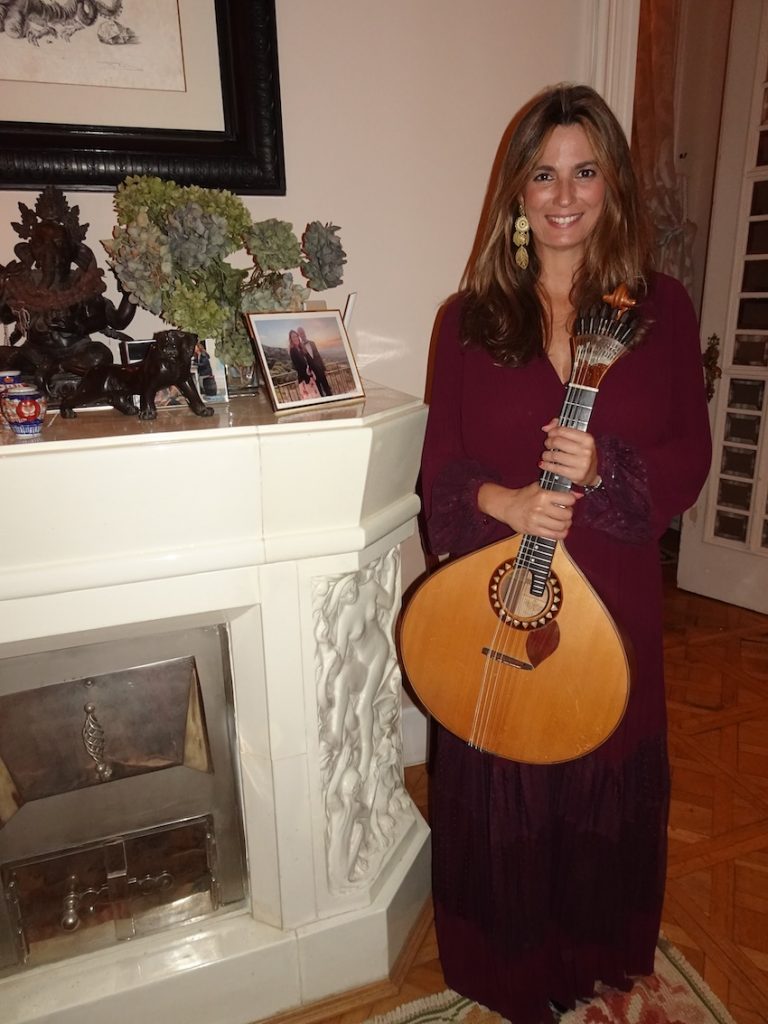
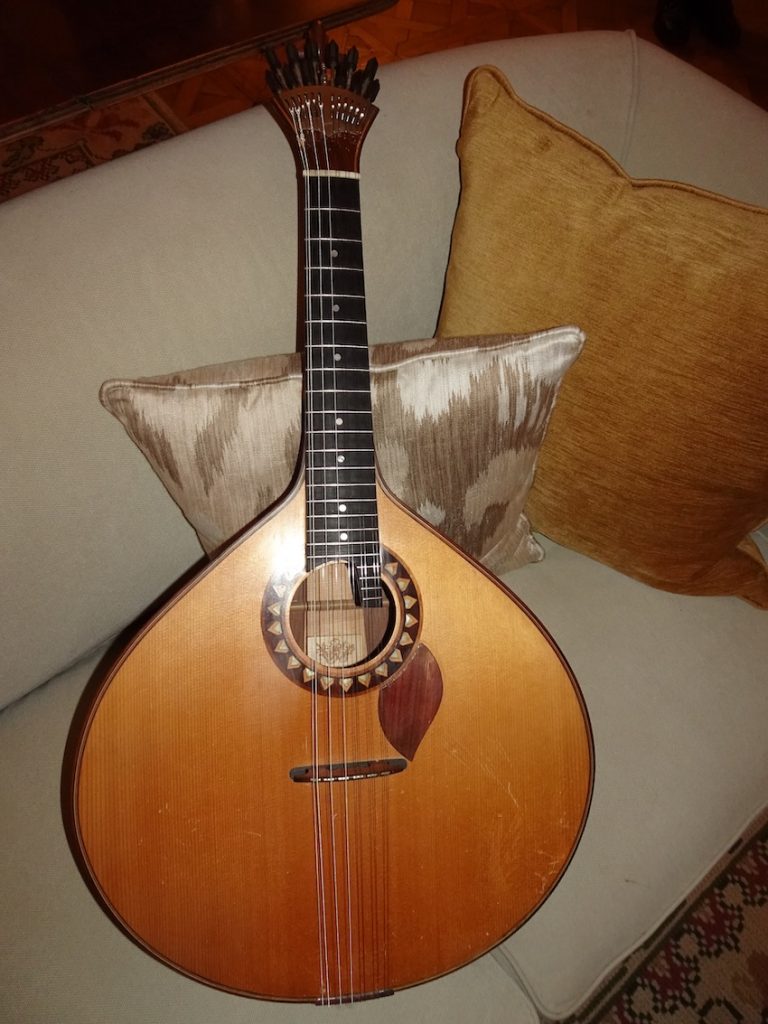
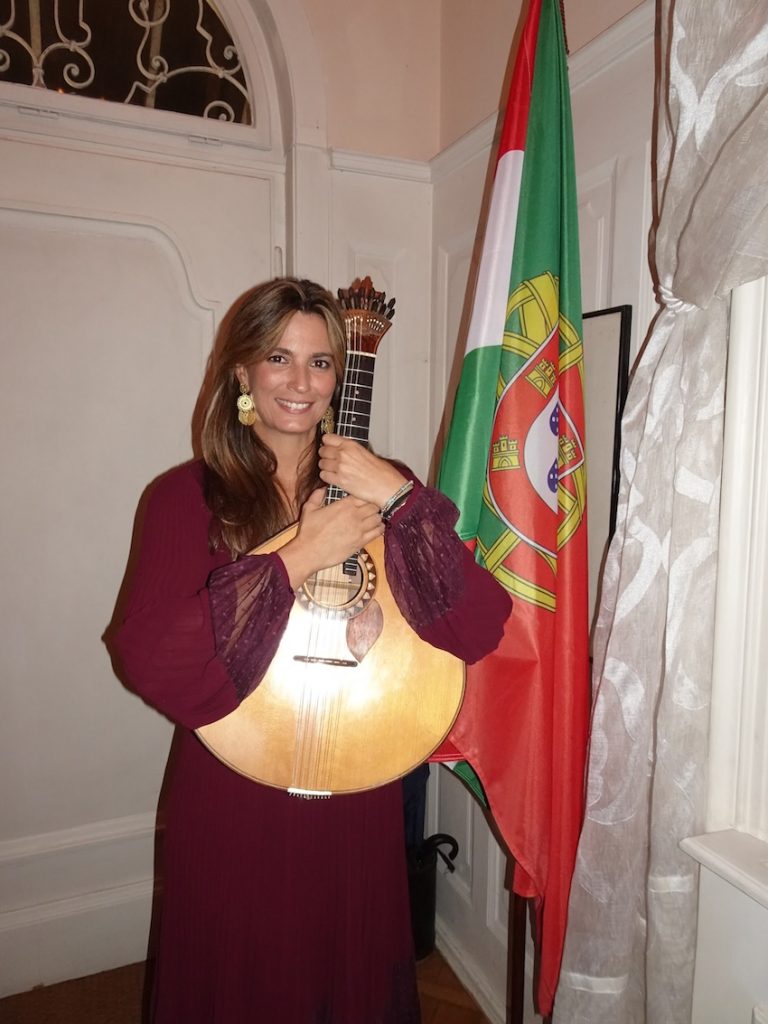
Indeed, through her art she takes the sound of Portugal across borders, creating fusions with jazz, world, and classical music, and building bridges between cultures. Fado – an authentic tradition that does not exist in other countries – becomes, through her, both timeless and renewed.
The Budapest Concert – Discovering the Soul of the Portuguese Guitar
For Marta, this was her first visit to Budapest – and her debut at the House of Music Hungary, one of Europe’s most extraordinary contemporary concert venues. The event, organized by the Embassy of Portugal in Hungary and the Camões Institute, drew a full house of Hungarian and international music lovers.
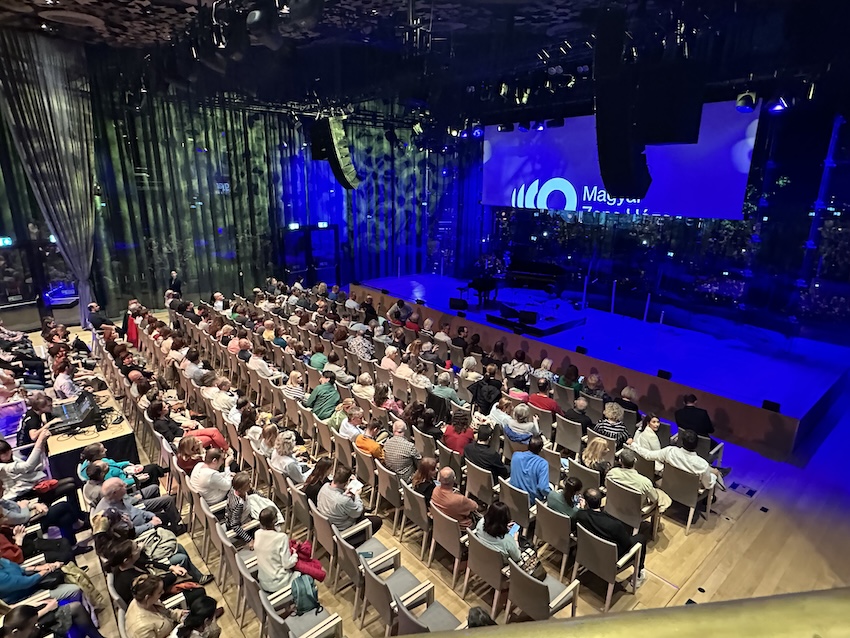
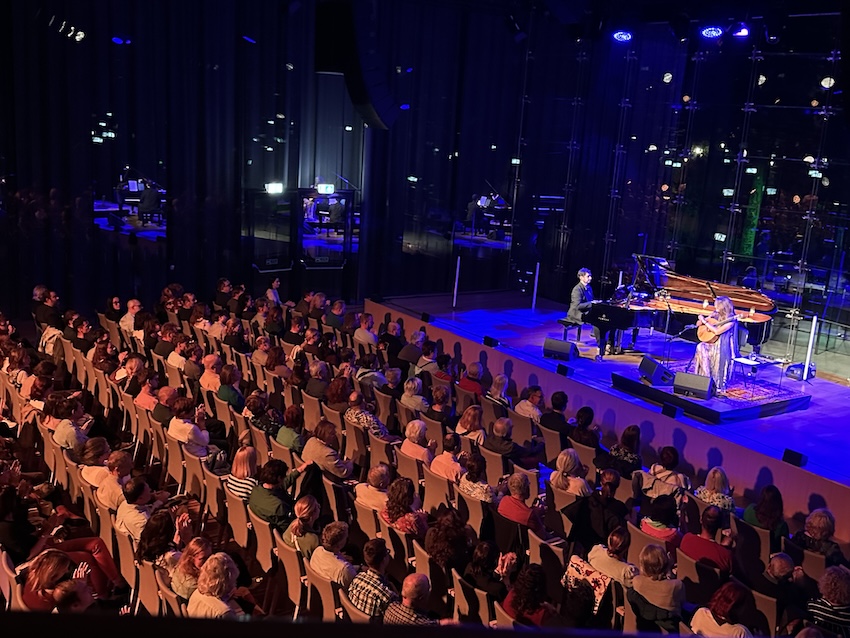
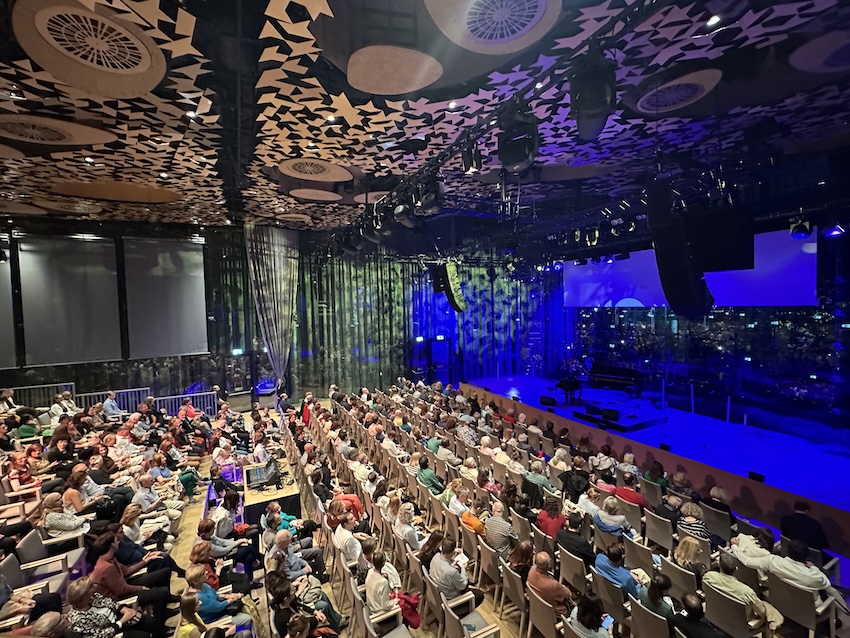
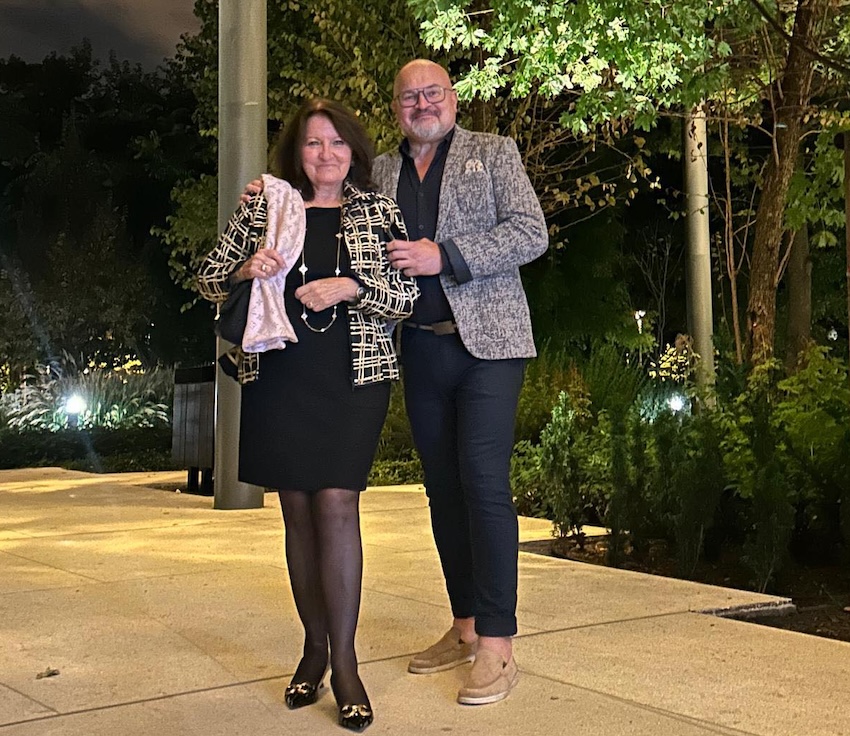
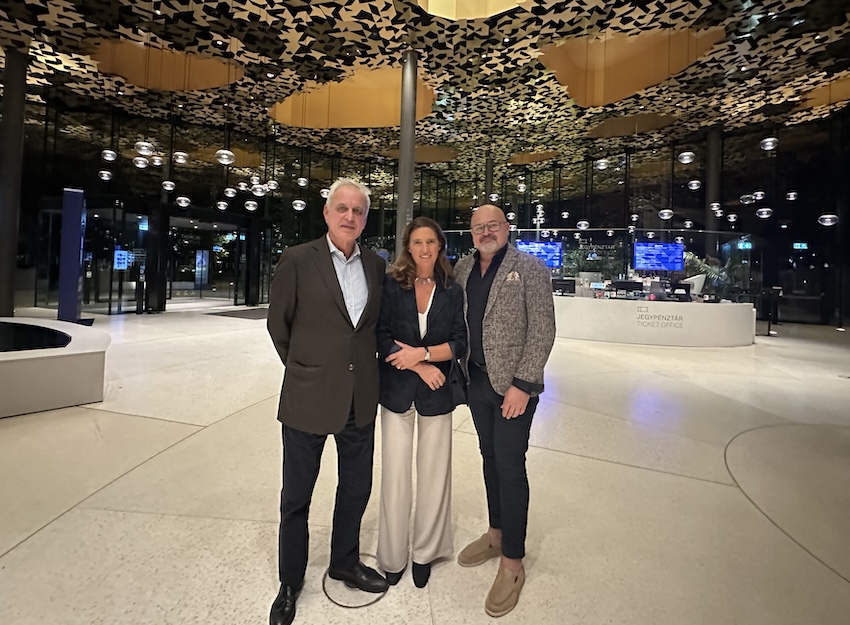
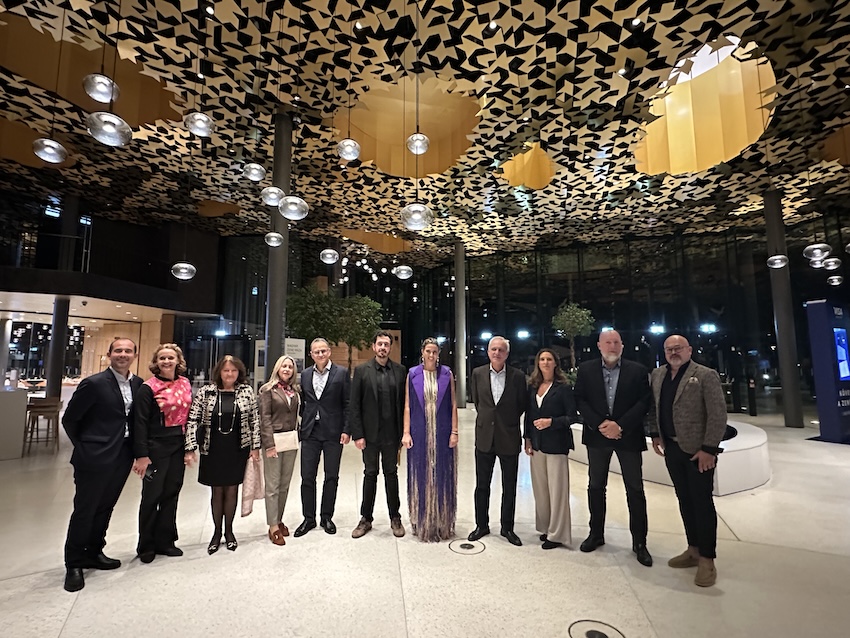
Designed by the Japanese architect Sou Fujimoto, the award-winning House of Music is an architectural wonder – a light-filled structure surrounded by the greenery of City Park, where glass walls dissolve the boundary between art and nature. Fujimoto’s vision of “a harmonious connection between architecture and nature” found its perfect echo in Marta’s music.
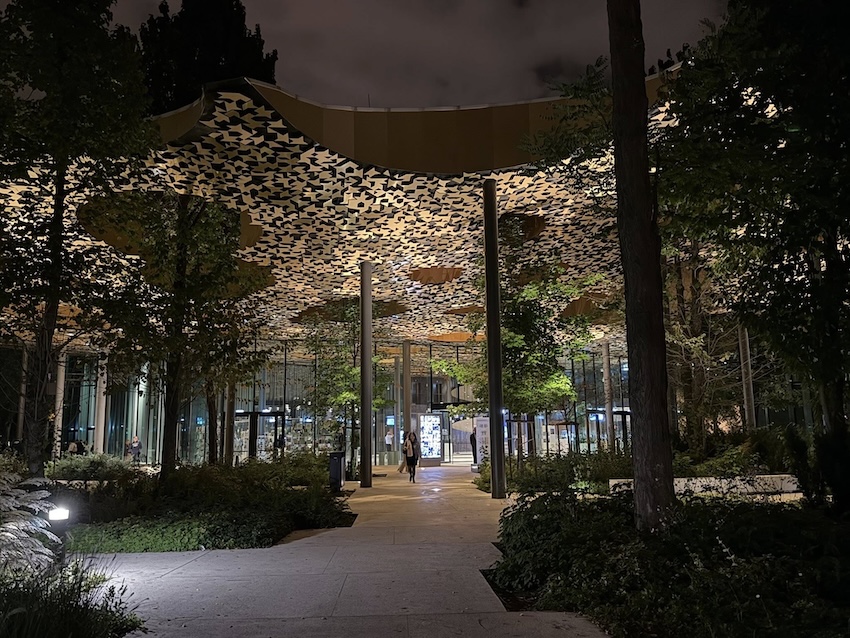
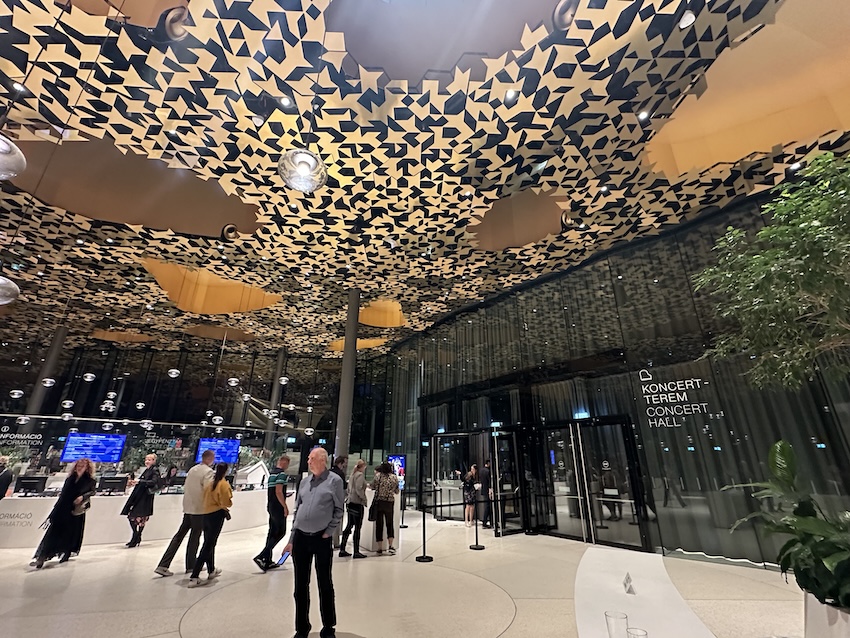
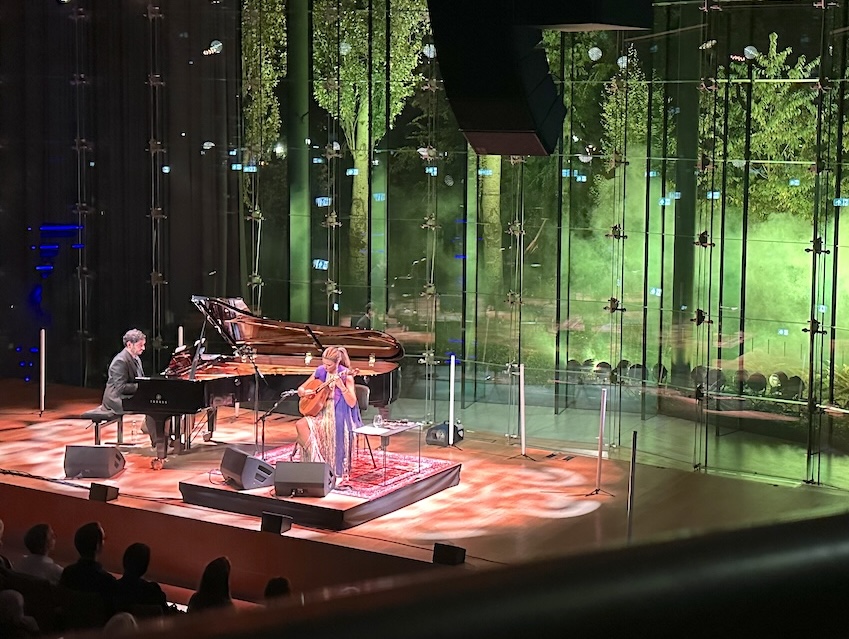
Accompanied by pianist Óscar Graça, Marta performed a repertoire blending traditional fado, jazz, world music, and her own compositions – full of emotion, nuance, and life stories. The Portuguese guitar became the voice of instrumental fado, traveling freely through musical eras and styles.
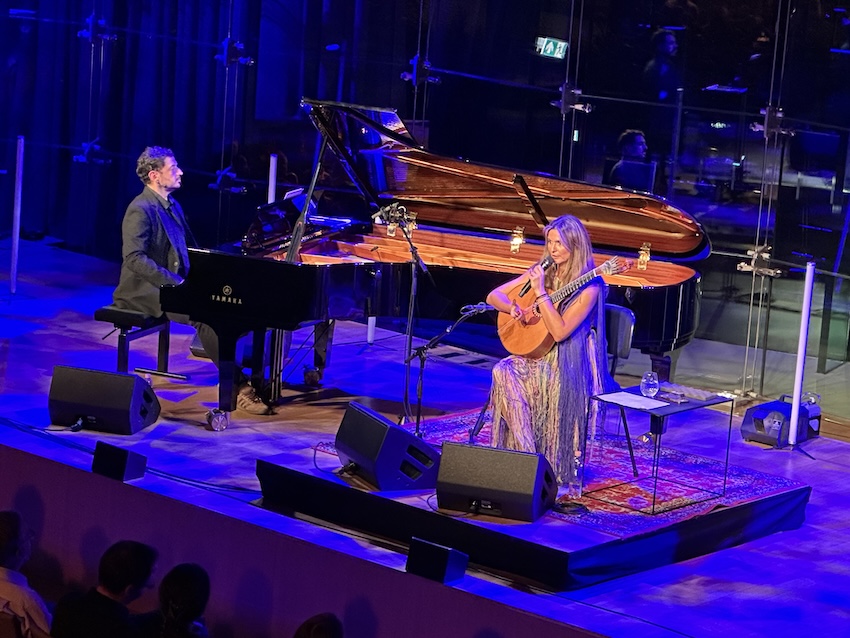
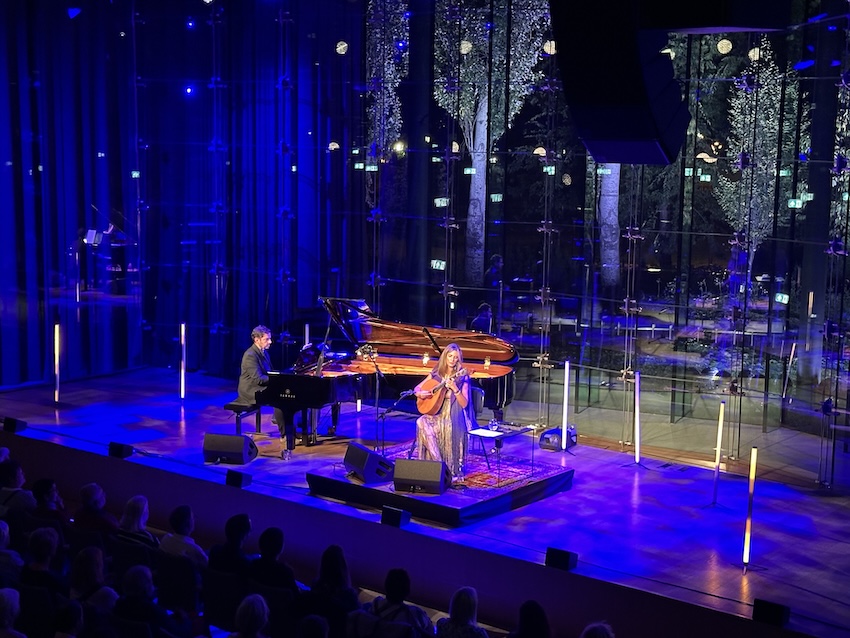
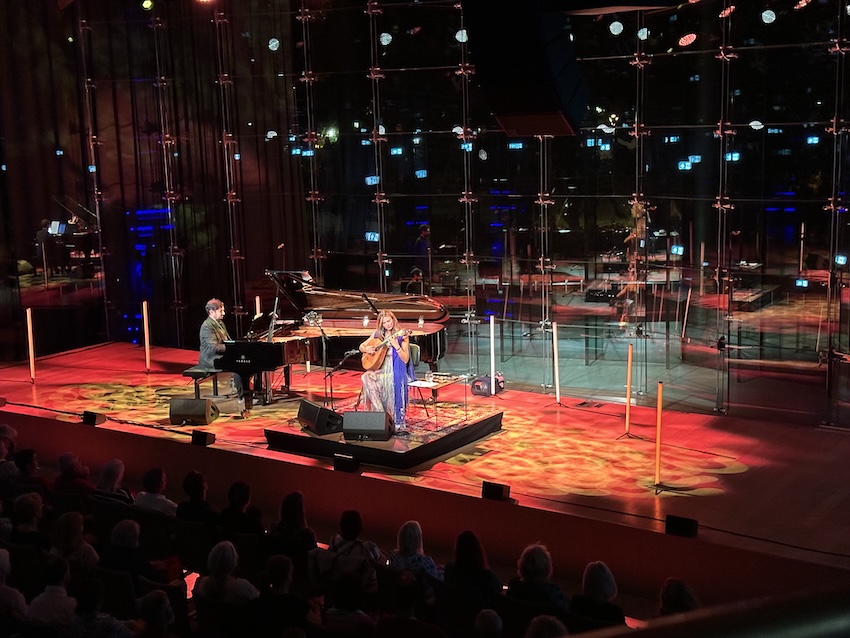
The program included both traditional pieces and Marta’s original works, inspired by her rich inner world and experiences of her life and by the places she dreams of visiting with her guitar. Each note resonated through the hall’s exquisite acoustics, enhanced by the natural beauty visible through the glass walls. The audience listened in stillness and awe, fully immersed in the poetic dialogue between piano and guitar. At moments, the music reflected the golden light and quiet saudade of Lisbon; at others, it flowed effortlessly between the expressive soul of fado and the free spirit of jazz. It was an intensely emotional concert that opened her soul to the audience, transforming each piece into a heartfelt conversation through music.
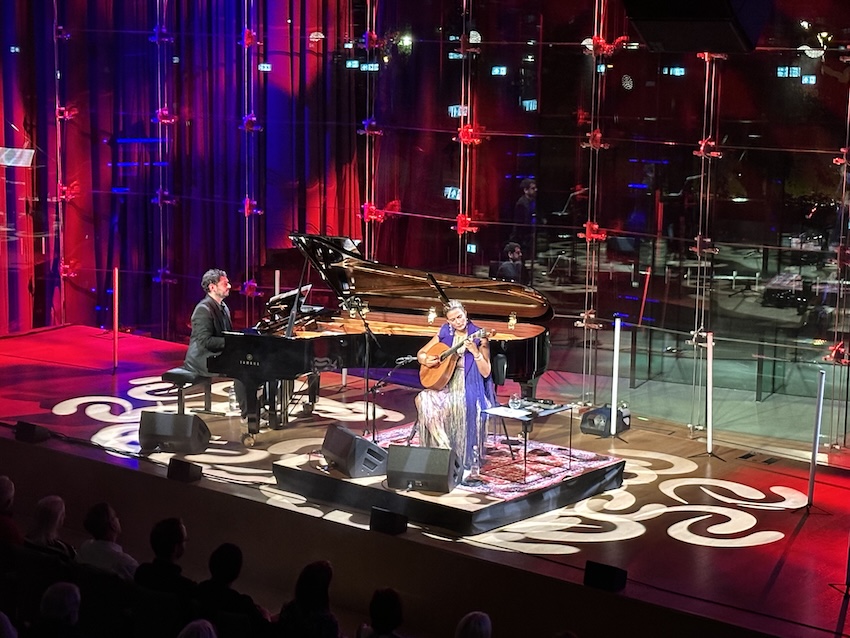
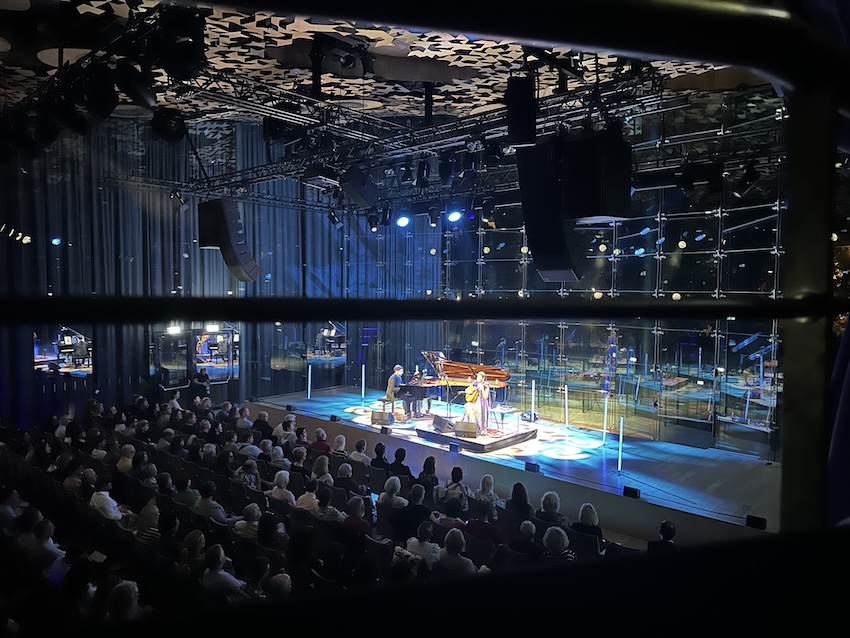
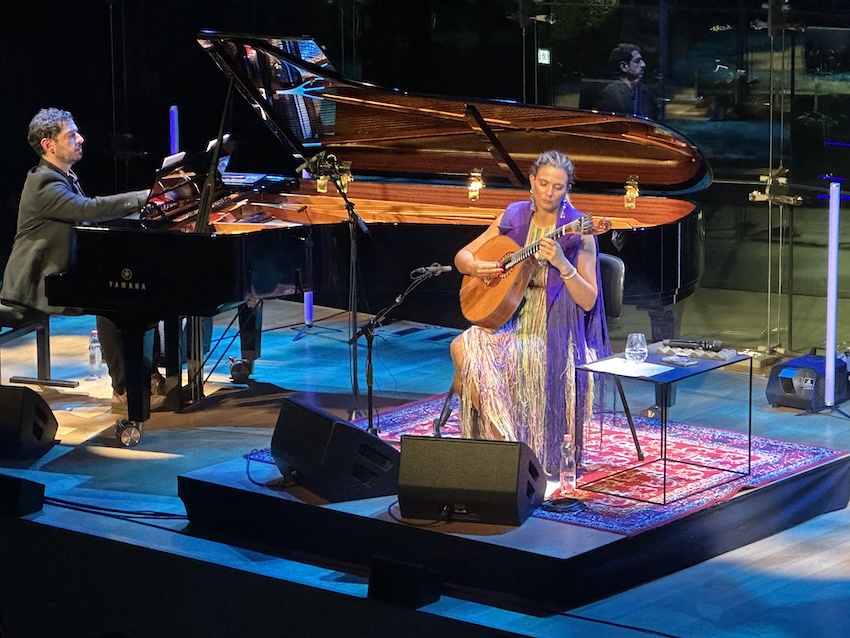
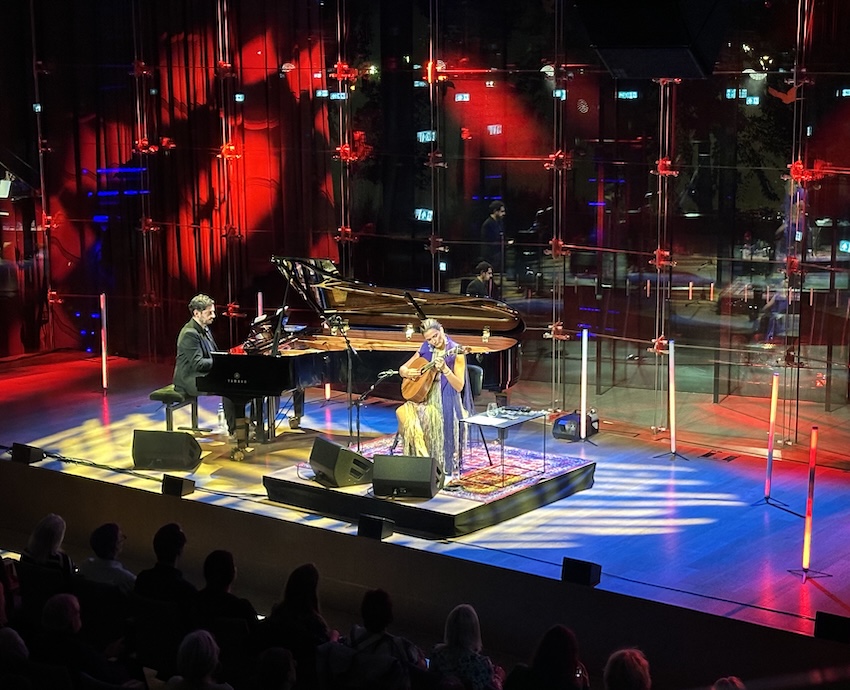
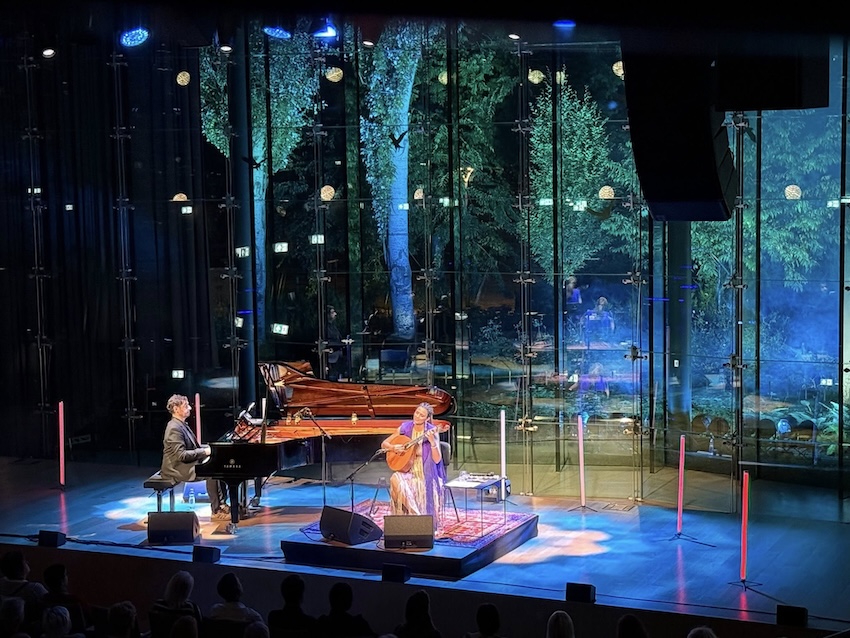
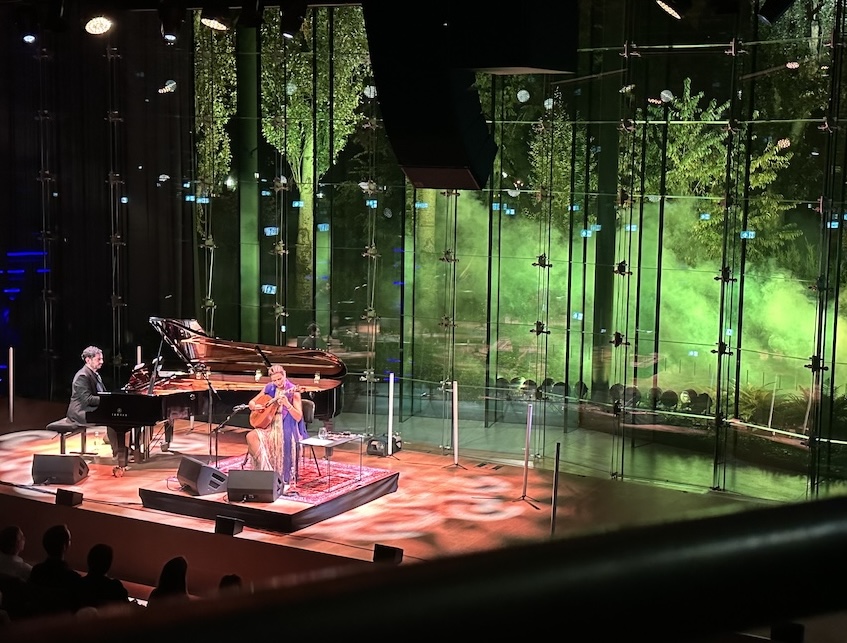
The concert concluded with a thunderous ovation – rhythmic clapping filling the hall, a Hungarian expression of admiration and gratitude. Nothing reaches the human heart more deeply and immediately than music.
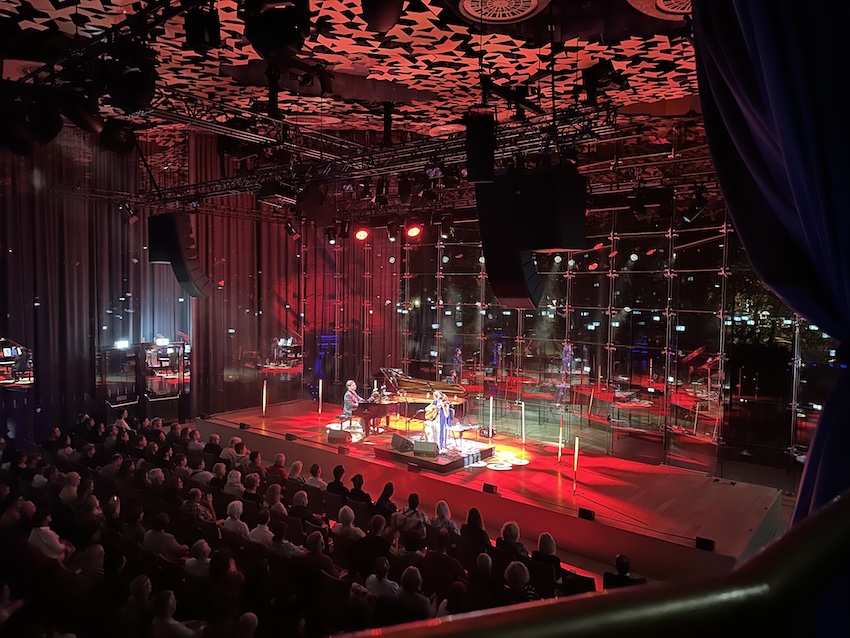
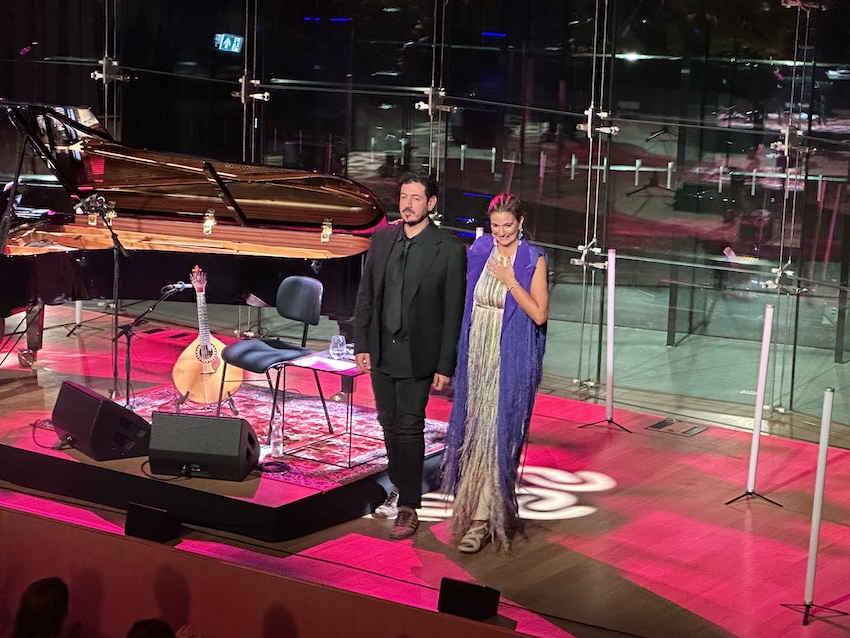
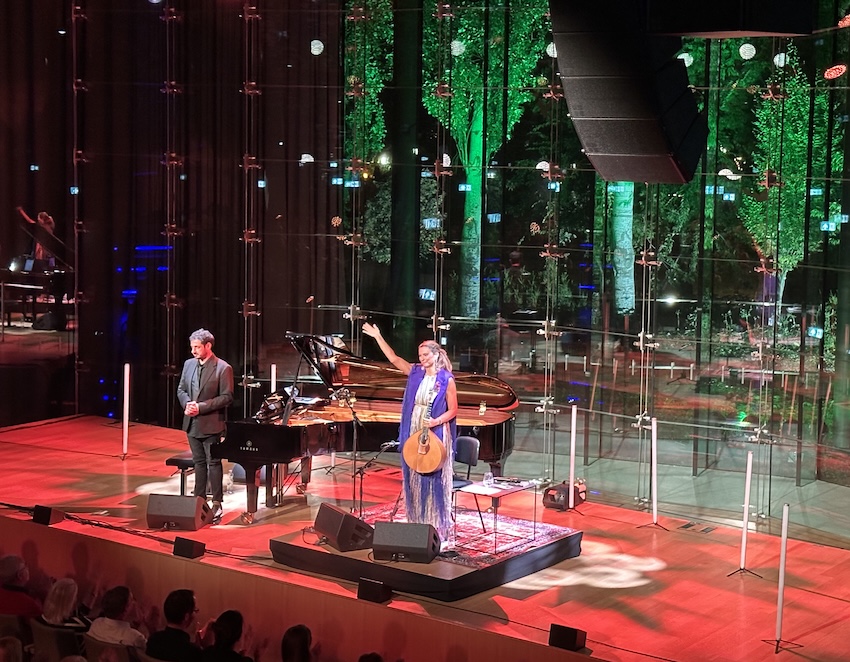
“The audience was so sensitive and warm,” Marta said afterwards. “I was deeply moved by their reception of our guitar–piano concert, a new and modern duo experience. It was an unforgettable evening, in an incredible place dedicated to all kinds of music.”
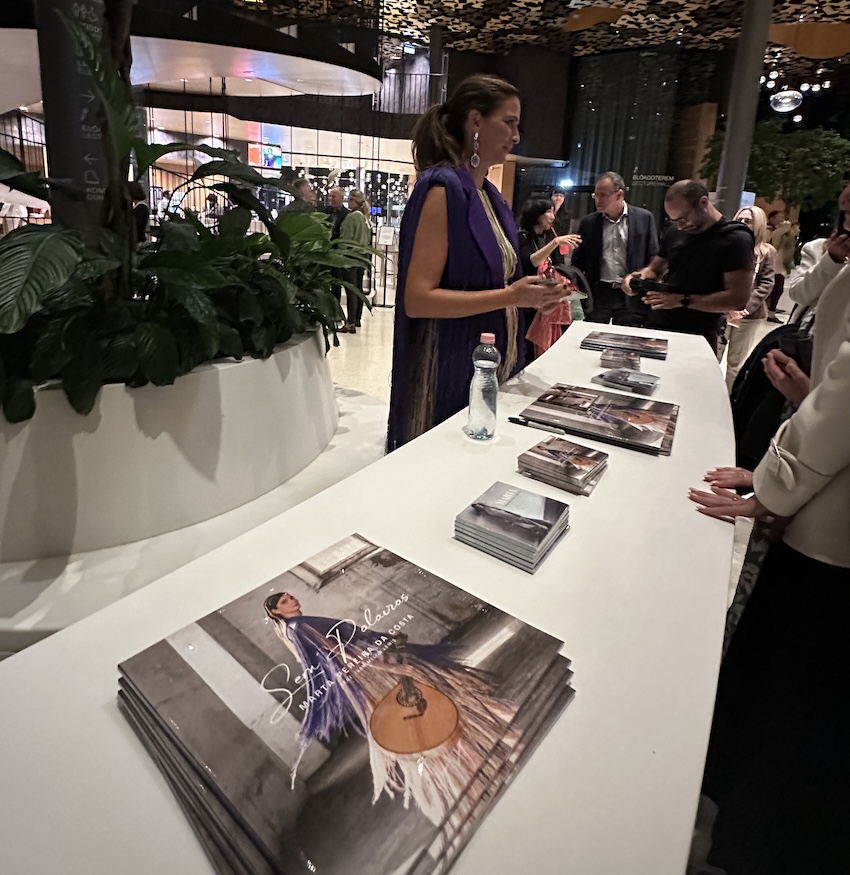
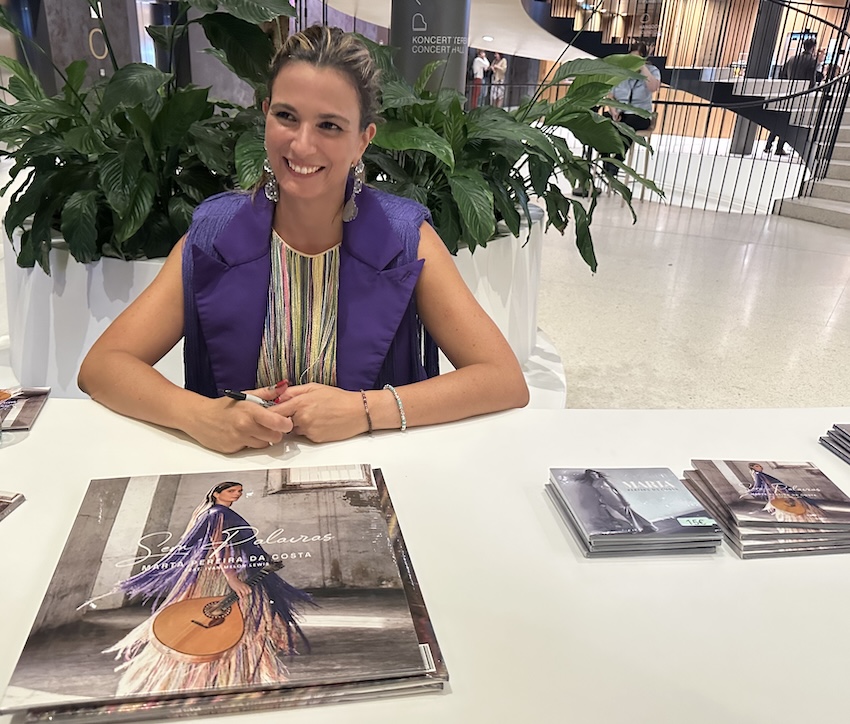
A Night of Intimacy and Soul – Concert at the Ambassador’s Residence
The following evening offered a more intimate experience: a private concert at the Residence of His Excellency Jorge Roza de Oliveira, Ambassador of Portugal to Hungary, and his spouse, Vera Vasconcelos de Abreu.
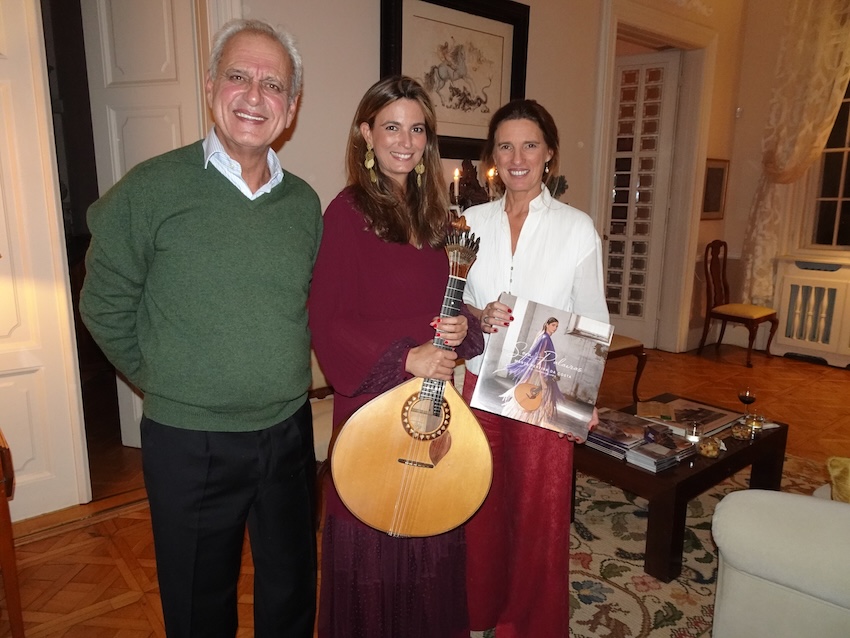
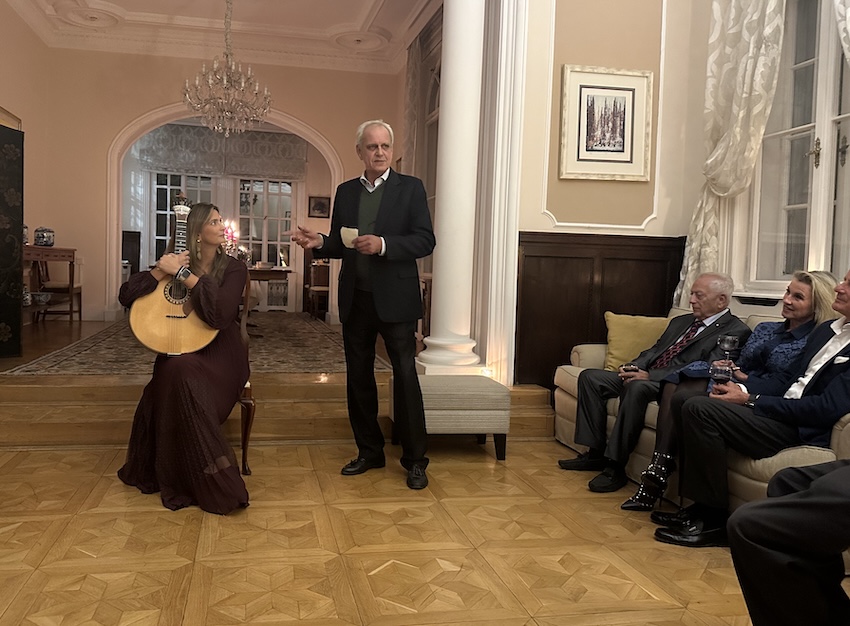
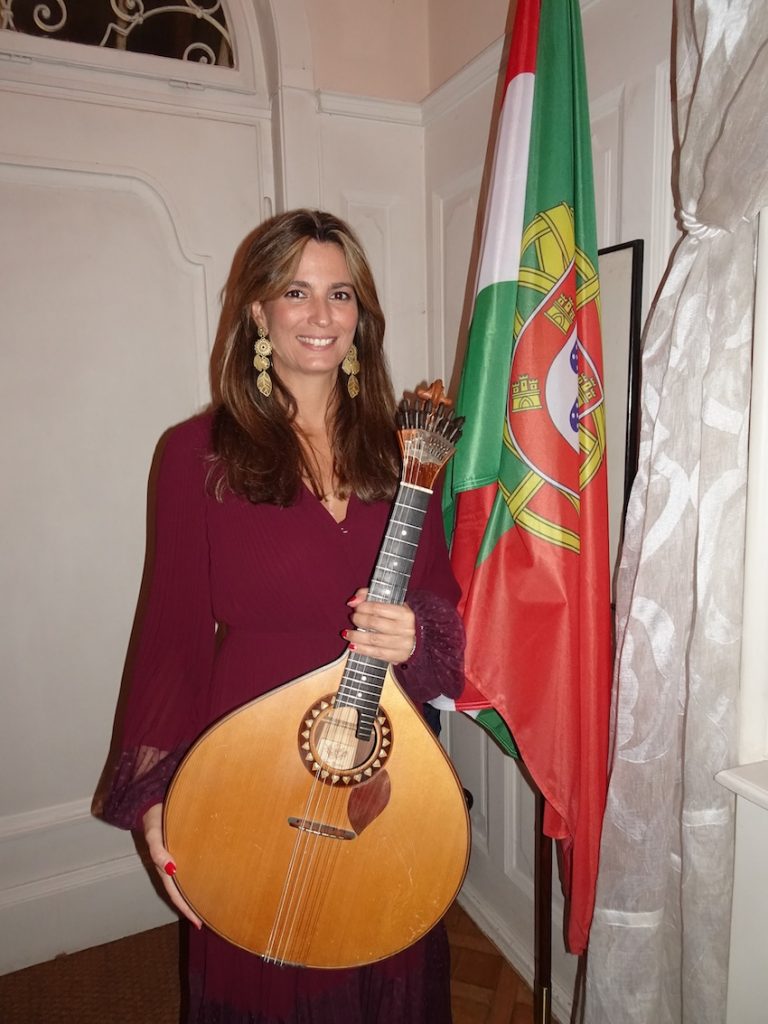
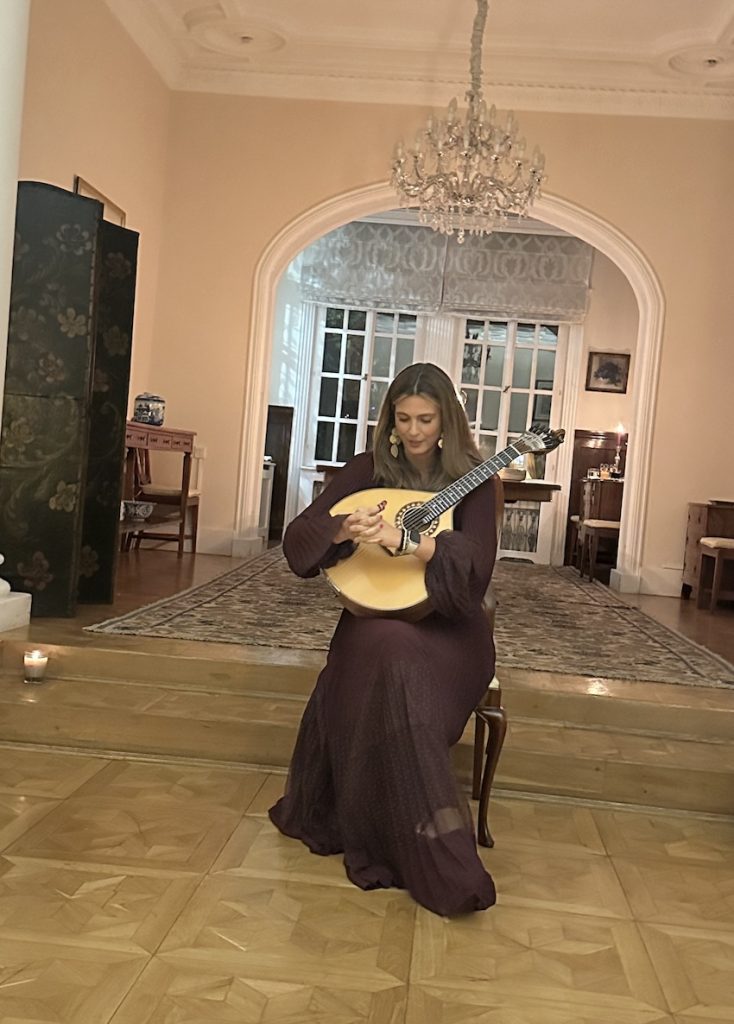
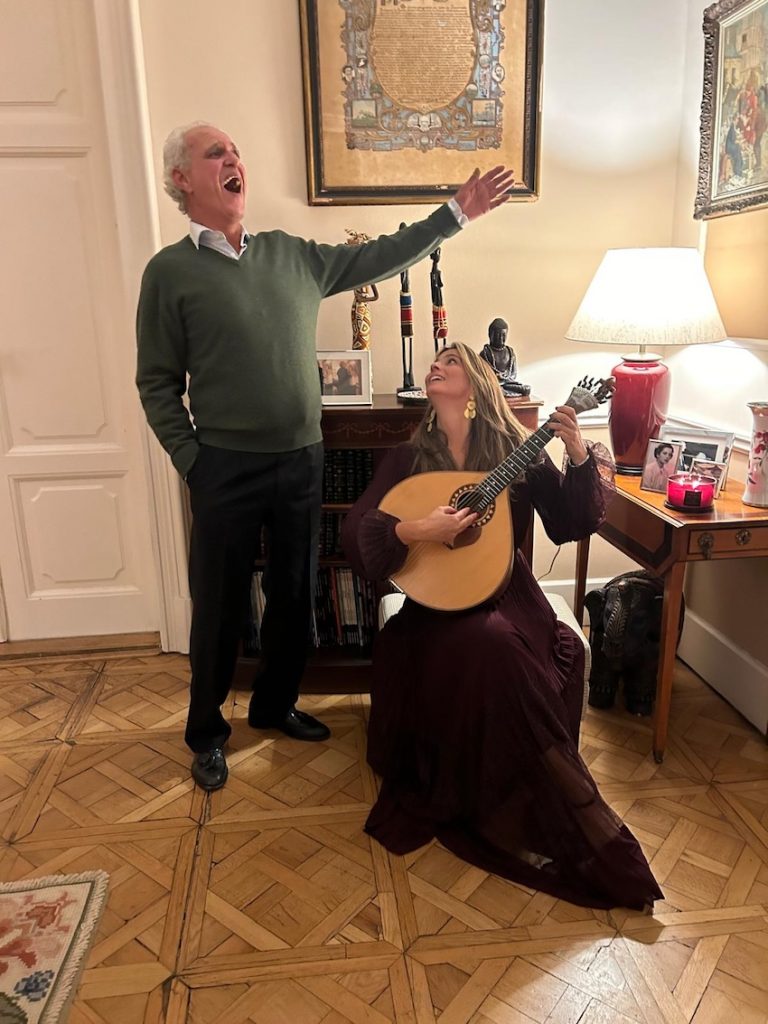
A small circle of invited guests – friends, diplomats, and music lovers – gathered to listen. This time, Marta performed solo. Without the piano, the Portuguese guitar stood alone, glowing with expressive power. Each string seemed to breathe, sing, and sigh, filling the salon with warmth and serenity – fado at its purest.


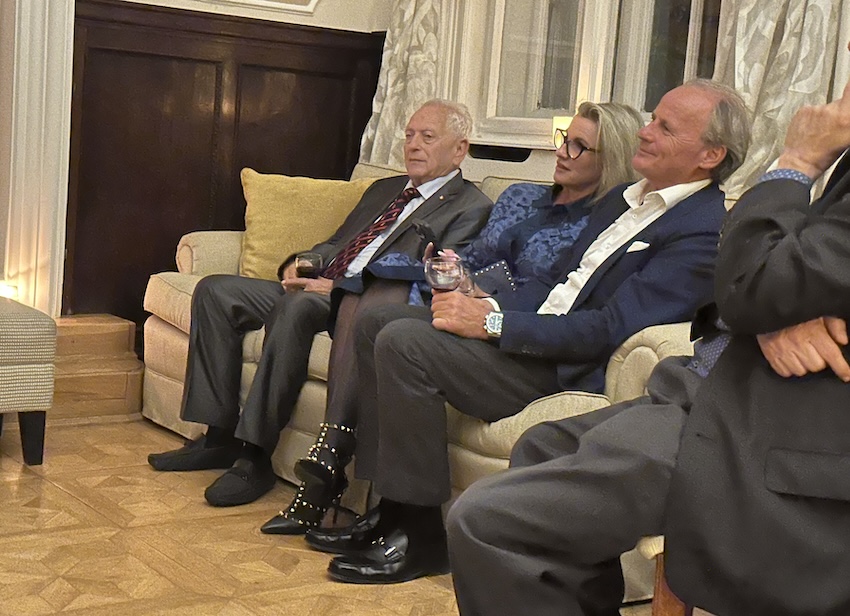
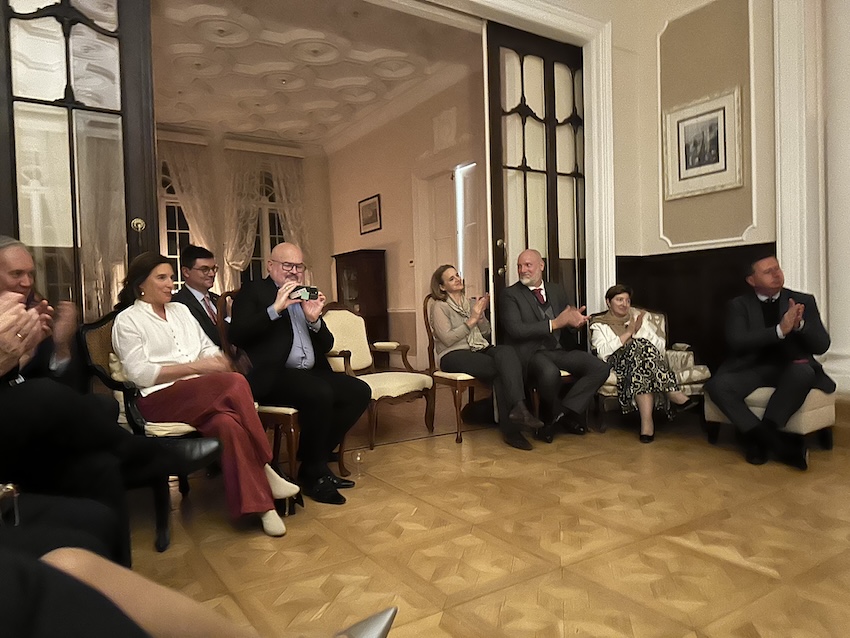


“When the guitar plays alone, it becomes the voice,” Marta explained. “It has its own language – emotional, lyrical, melancholic, and honest.”
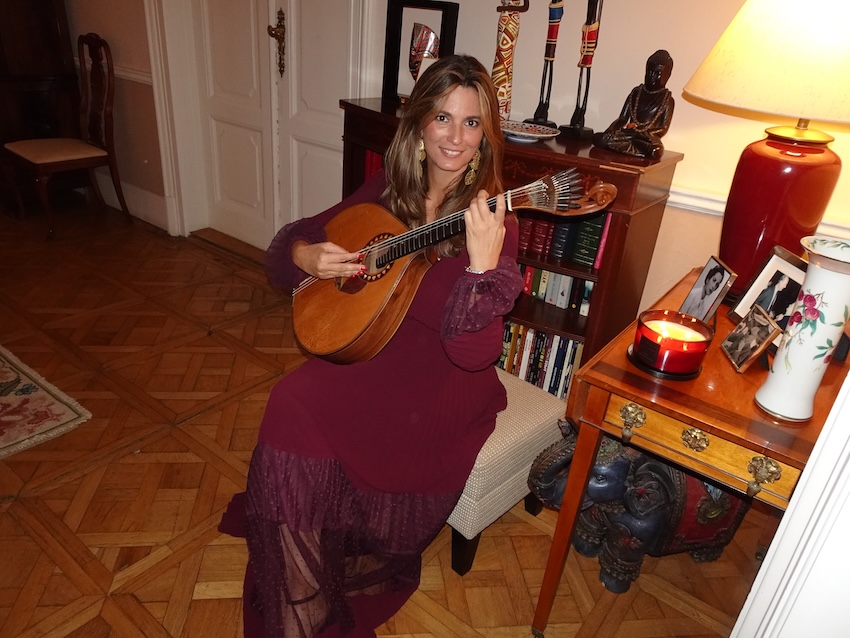
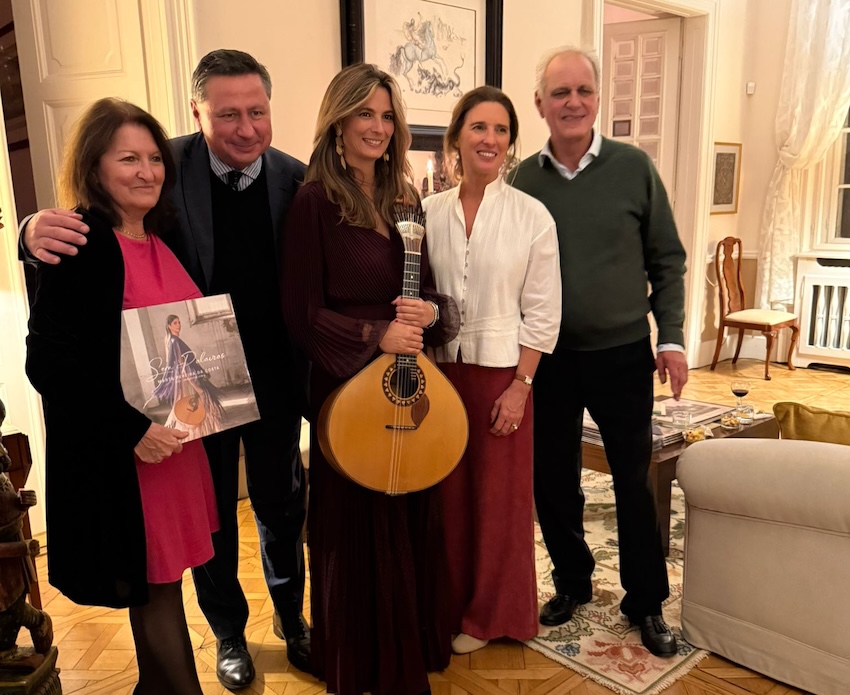
After the performance, the hosts welcomed guests to a friendly reception, where conversation flowed easily – about music, Portugal, and Marta’s artistic journey. It was there that I had the privilege of interviewing her – an inspiring and heartfelt exchange that revealed her deep connection to her instrument and her life’s mission.
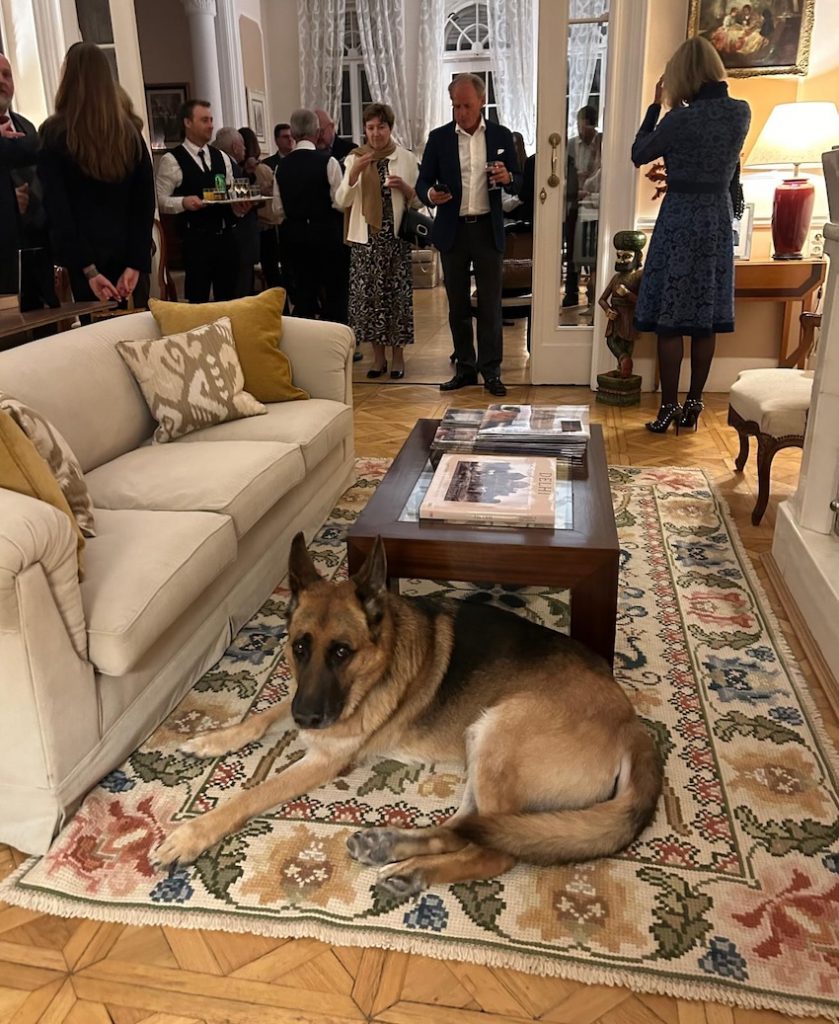





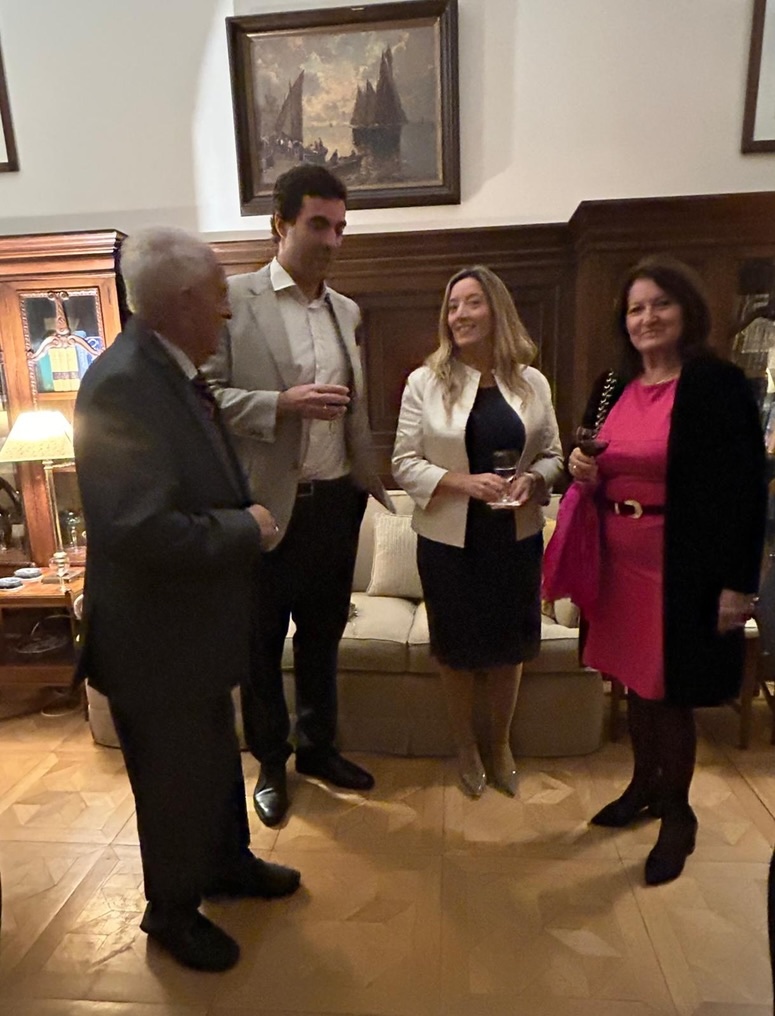
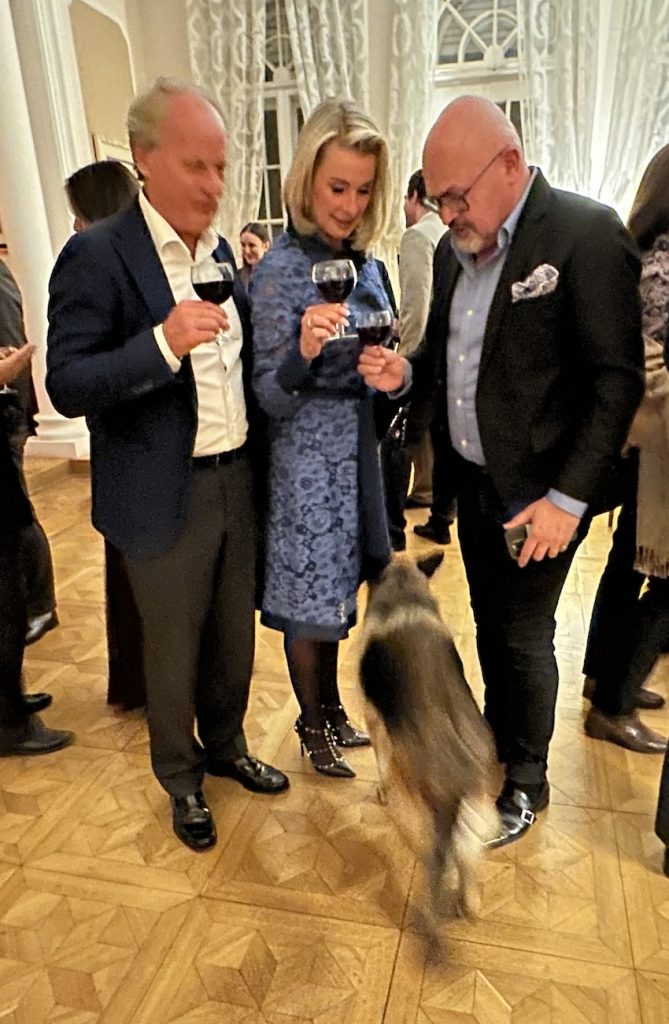
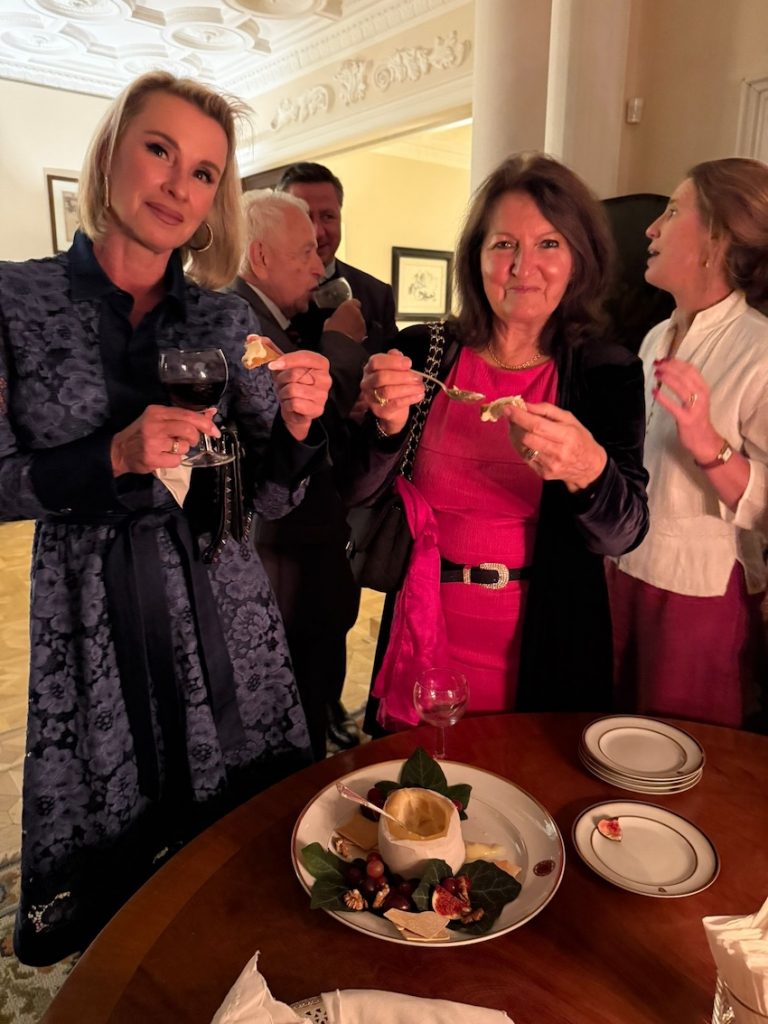
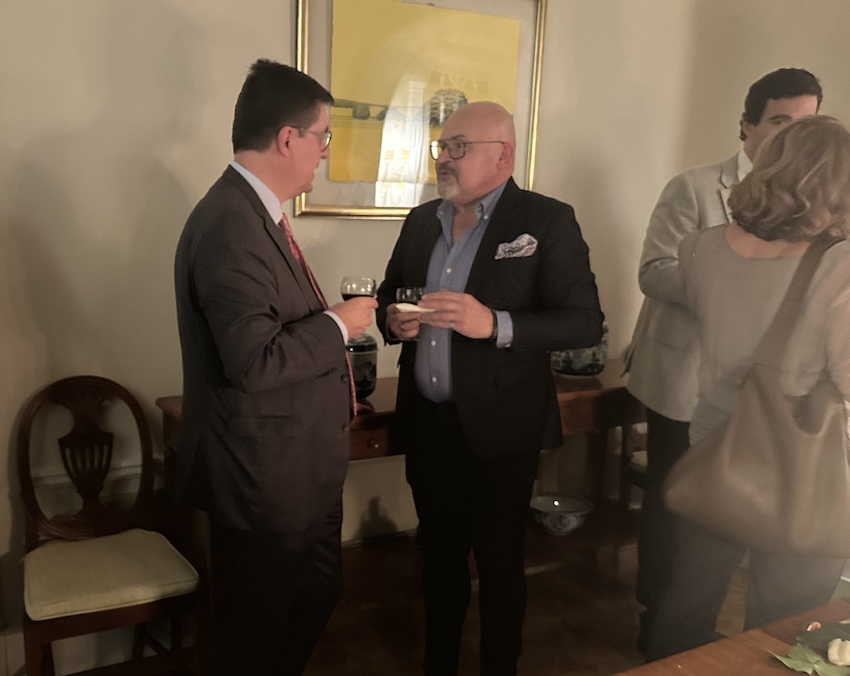
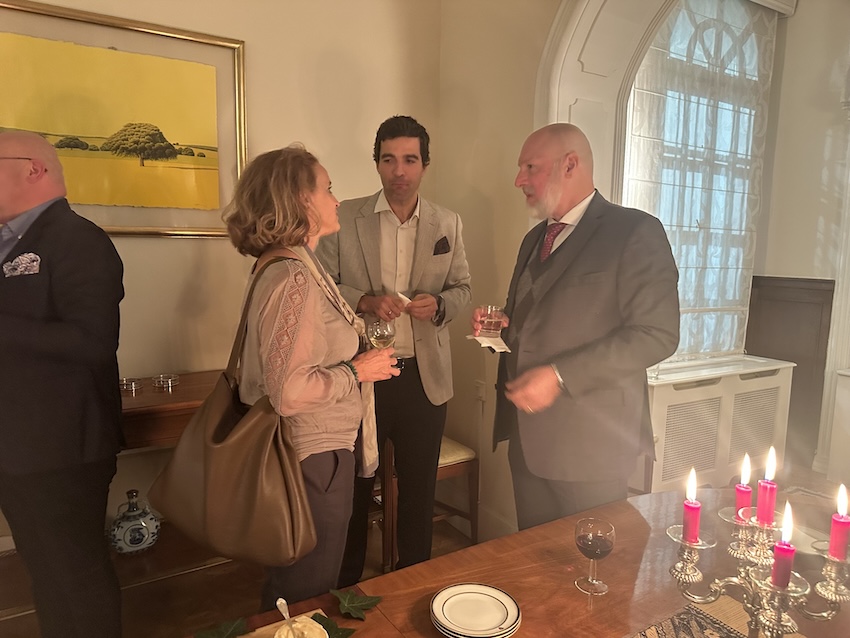
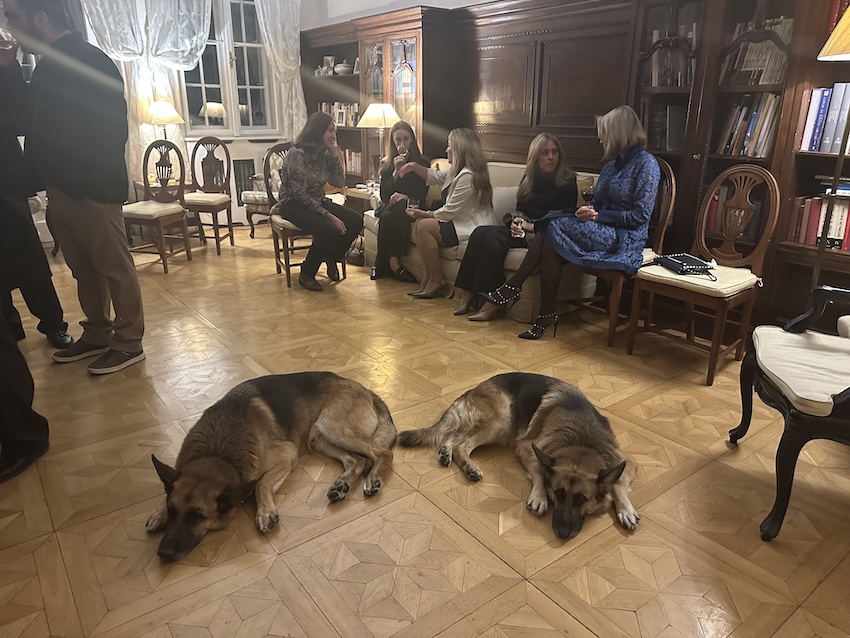
The Artist’s Journey – From Lisbon to the World
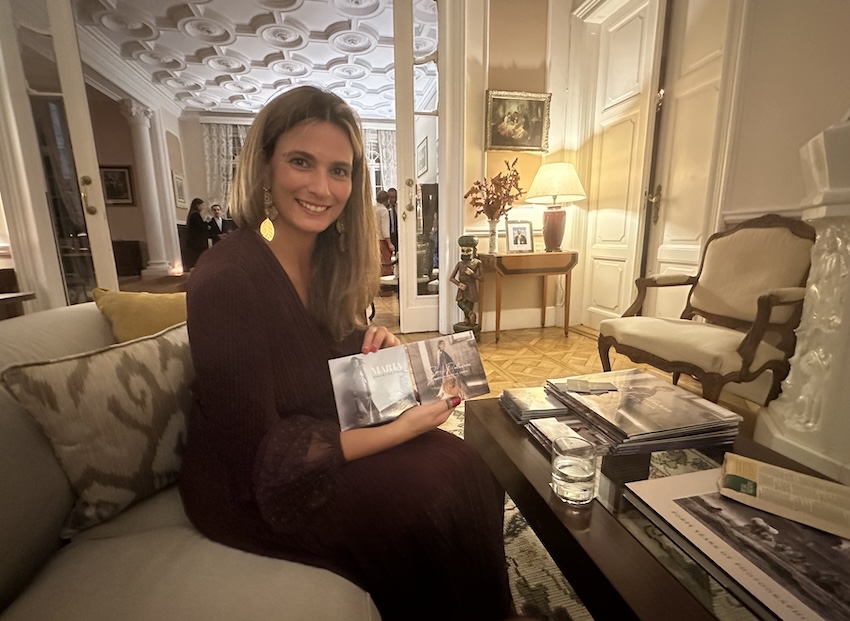
Born and raised in Lisbon, Marta began playing the piano at the age of four, but it was the Portuguese guitar that truly captured her heart. Surrounded by fado at home, she took her first lessons from Carlos Gonçalves, the legendary guitarist who accompanied fado icon Amália Rodrigues. “That class was transformative,” she recalls. “Carlos played Lágrima, and I understood the emotion of the instrument. I knew I wanted to dedicate my life to the Portuguese guitar.”
Before becoming a professional musician, Marta was a civil engineer. “Until 2012, I worked at the Earthquake Engineering Laboratory,” she says. “But I always knew my dream was to live from music. One day, I left everything behind.”
Lisbon’s fado houses became her true classroom – nights filled with emotion, discovery, and learning. “Fado houses gave me the experience and confidence to travel,” she explains. “It’s a great school, but a different kind of life. I wanted to take the guitar to the world.”
Musical Collaborations and Style
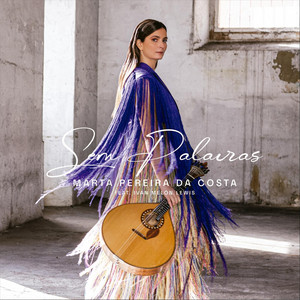
Over the years, Marta has performed in various formations from quintet to duo and solo. “The quintet allows for versatility – atmosphere, solos, energy,” she notes. “But I also love the duo – Portuguese guitar and piano, the two instruments that mean the most to me.”
Her second album Sem Palavras (Without Words, 2024), recorded with pianist Iván Melón Lewis, reflects that passion. “We recorded together in total harmony. The idea was to strip everything down – no distractions, just the two instruments. Simple, raw, emotional.”
Composition and Inspiration
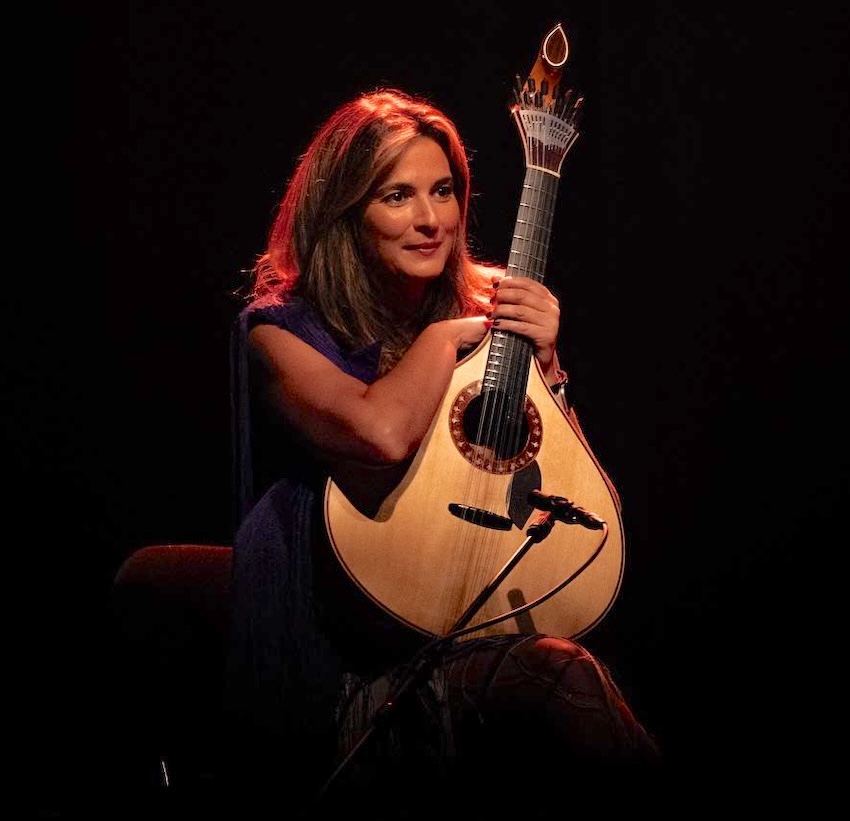
Marta is a prolific artist, she composes from the heart, drawing inspiration from the world around her. “I’m inspired by life – by the classical music I heard as a child, by the sea, by my children, by my father and grandmother, by sunsets. Music should flow like water – growing and changing like life itself.”
She records fragments of melodies as they come, developing them over time. “I’m proud that other musicians play my compositions. It’s wonderful to see my music travel through other instruments.”
Internationally acclaimed, Marta still remains humble and grounded. “I’m happy and grateful that I can live from what I love. My dream is to take the Portuguese guitar even further – to have it recognized worldwide as a solo instrument, like the flamenco guitar or the bandoneon in tango. It deserves to shine on its own.”
The Revival of Fado – A Living Tradition

Regarding my questions about the revival of fado in Portugal, Marta said: “When I was 18, fado houses were mostly visited by older people. Now, young people go – even my children. It’s a renaissance. Fado represents our soul, our emotions, our way of being Portuguese. Amália Rodrigues was the first great and globally acclaimed fado singer, and today we have many talented successors.”
Fado, she adds, is a fantastic tradition that does not exist in other countries – a uniquely Portuguese expression of longing and beauty. And while singers often take the spotlight, my mission is to bring the Portuguese guitar itself to the forefront – as a solo instrument with its own identity and brilliance.
Reflections and Message
When asked what message she wishes to share, Marta smiles softly. “I would like people to be curious – to listen to the Portuguese guitar, to discover our music, to learn about Portugal’s culture. Music is how we share who we are.”

For Marta Pereira da Costa, the Portuguese guitar is not just an instrument, it is a living voice. “For me, the guitar is feminine,” she says. “She breathes, she speaks, she cries. She is my way of expressing myself without words.”
Epilogue
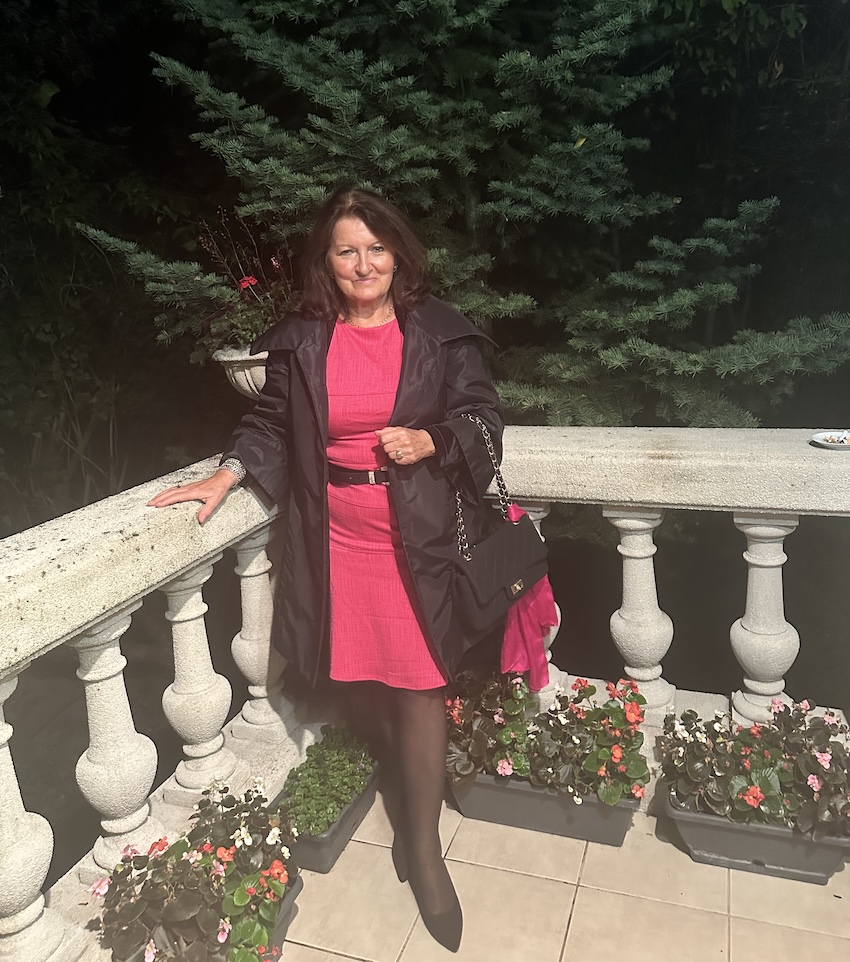
As I left the Ambassador’s Residence that night, the final echoes of her guitar still lingered in my mind — clear, luminous, and full of emotion. Her words, filled with sincerity and quiet passion, seemed to blend with those fading notes, extending the concert beyond its end.
With her impressive personality and artistic sensitivity, Marta Pereira da Costa gives new life to the Portuguese guitar, which through her hands was reborn and spoke to Budapest – and to the world – not with words, but in the most universal language of all: music, the language of the soul.
Source: Embassy of Portugal in Budapest
Photos from the Embassy of Portugal in Budapest, Facebook/Marta Pereira da Costa, Diplomatic Press Agency


